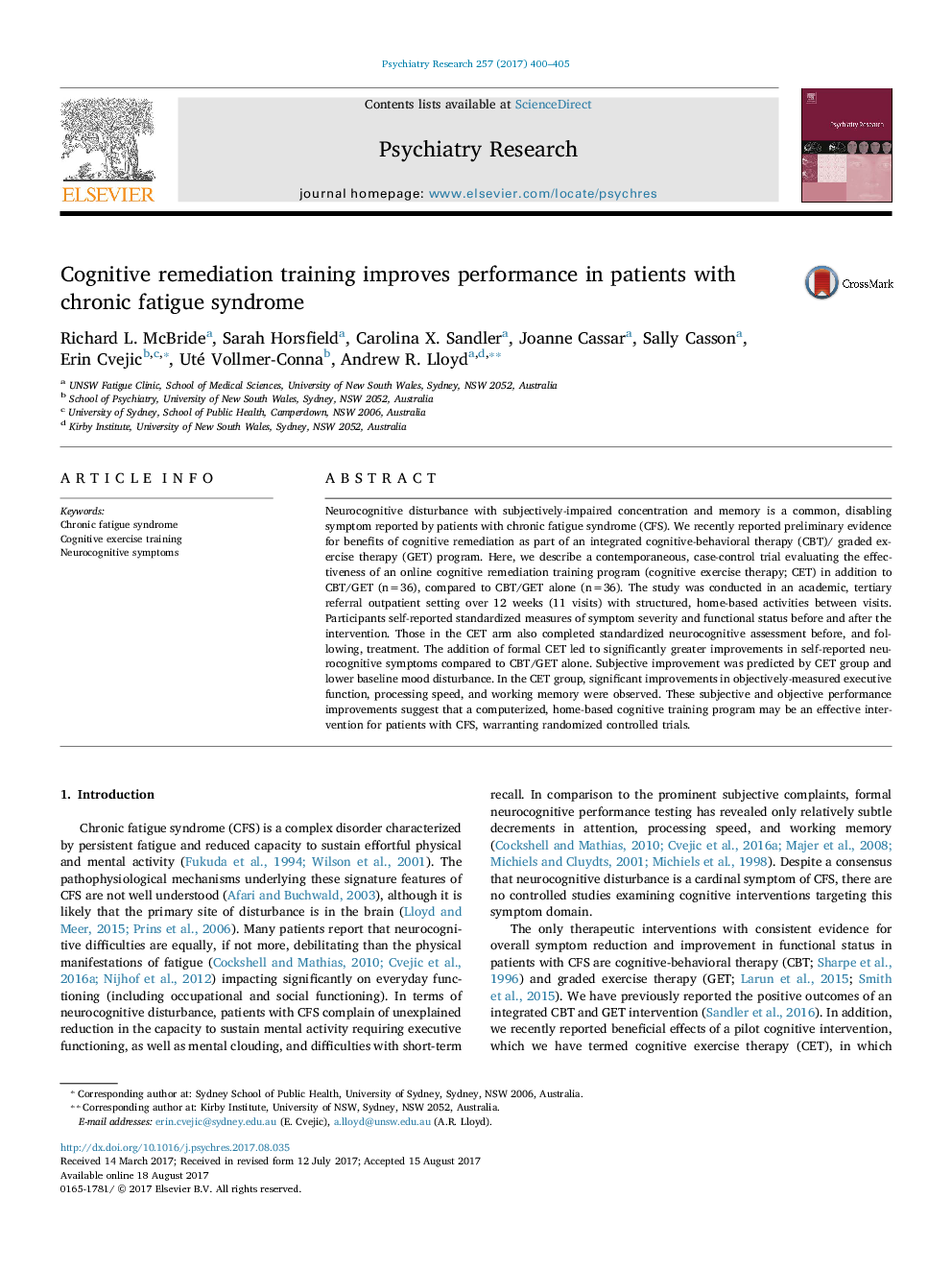ترجمه فارسی عنوان مقاله
آموزش اصلاح شناختی بهبود عملکرد در بیماران مبتلا به سندرم خستگی مزمن را بهبود می بخشد
عنوان انگلیسی
Cognitive remediation training improves performance in patients with chronic fatigue syndrome
| کد مقاله | سال انتشار | تعداد صفحات مقاله انگلیسی |
|---|---|---|
| 121236 | 2017 | 6 صفحه PDF |
منبع

Publisher : Elsevier - Science Direct (الزویر - ساینس دایرکت)
Journal : Psychiatry Research, Volume 257, November 2017, Pages 400-405
ترجمه کلمات کلیدی
سندرم خستگی مزمن، تمرینات شناختی، نشانه های عصبی شناختی،
کلمات کلیدی انگلیسی
Chronic fatigue syndrome; Cognitive exercise training; Neurocognitive symptoms;

